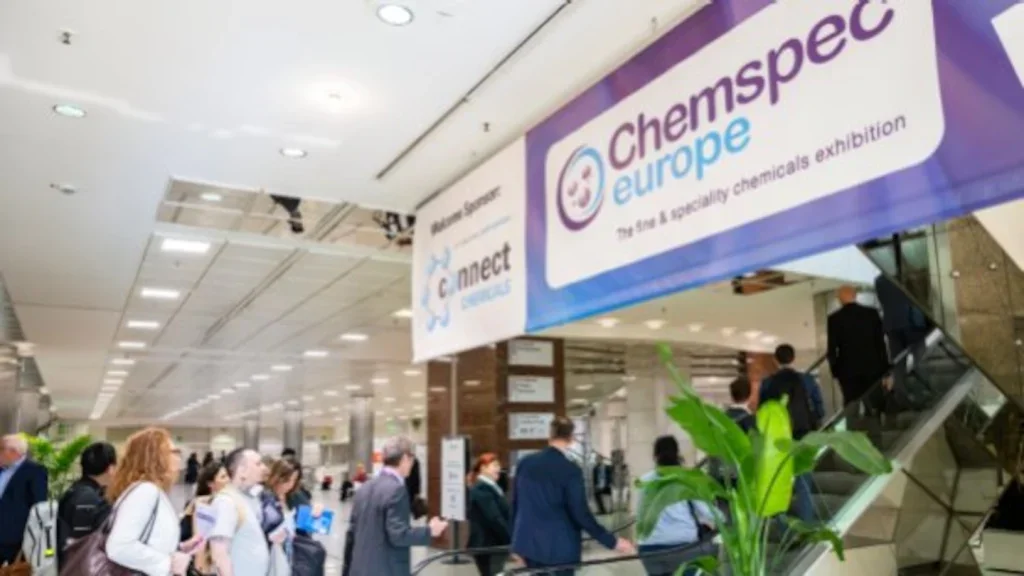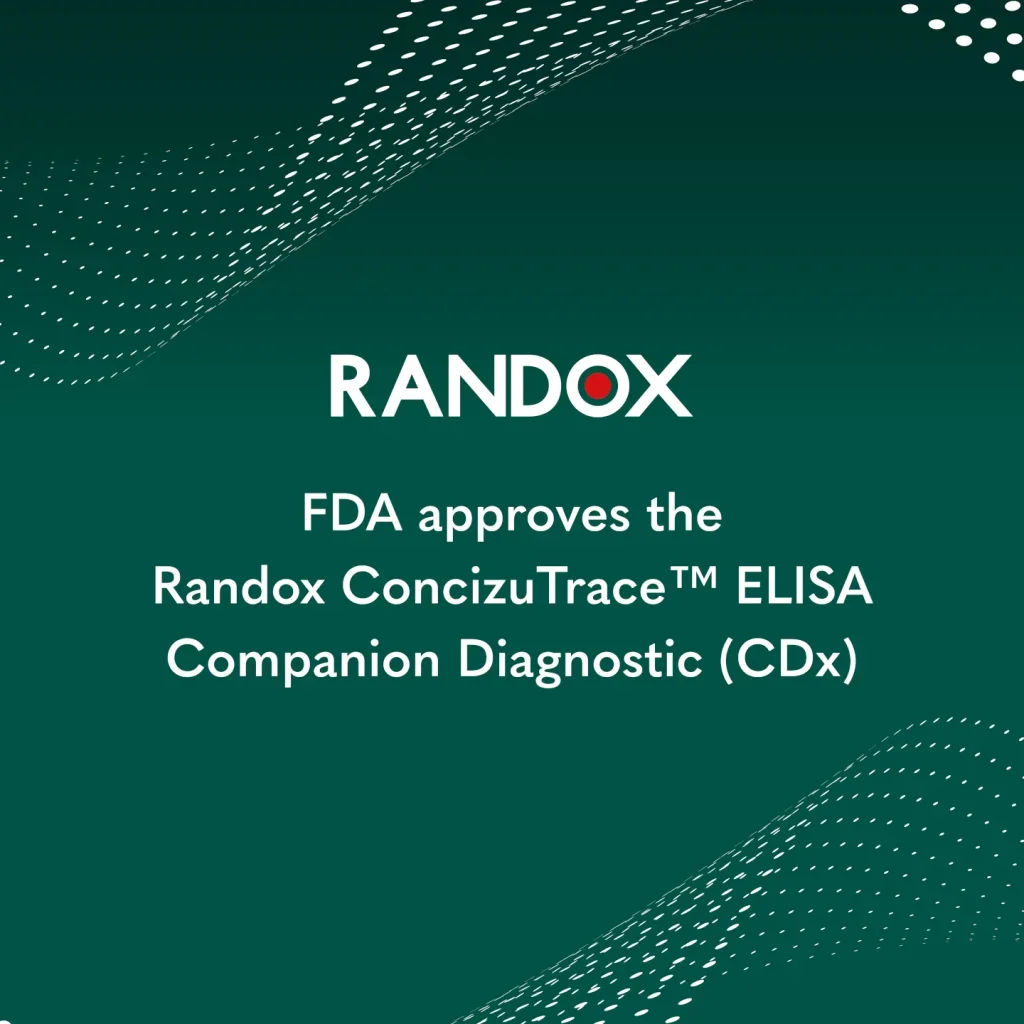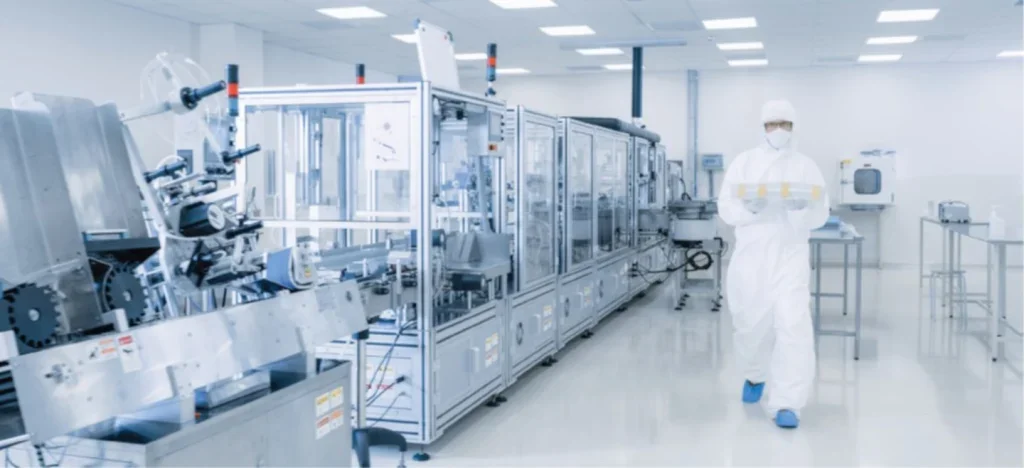All articles by Staff Writer
Fine and speciality chemicals industry keeps its cool: Resilience and quality connections define Chemspec Europe 2025
The 38th International Exhibition for Fine and Speciality Chemicals has delivered a resounding success, proving that this industry thrives under pressure. Following a dynamic two-day run at Koelnmesse in Cologne, Germany, the event generated significant impact at a pivotal moment for the global chemicals industry. A total of 424 key suppliers from 23 countries showcased their chemical substances, bespoke solutions and manufacturing services to an exceptionally engaged trade audience, bringing together around 7,000 industry professionals in productive networking and business discussions.
FDA approves the Randox ConcizuTrace™ ELISA Companion Diagnostic (CDx)
Randox Laboratories announced that the U.S. Food and Drug Administration (FDA) has approved the De Novo application for the company’s first Companion Diagnostic (CDx). This is a major achievement for Randox following over 3 years of innovative development and collaboration with Novo Nordisk. The Companion Diagnostic was developed as a new option for determining the amount of medication a patient with hemophilia has received.
The ultimate hub for fine and speciality chemicals
Chemspec Europe 2025 returns to Cologne with expanded exhibition space, enhanced digital tools, and a diverse line-up of industry leaders. This premier event will showcase cutting-edge solutions across key sectors, offering unparalleled networking and business opportunities for professionals worldwide. Chemspec Europe 2025: Koelnmesse, Cologne | June 4-5, 2025, Hall 4.2 & 5.2.
Big names, big issues: Chemspec Europe 2025 to deliver strong insights and momentum at a pivotal time for the chemicals industry
From 4–5 June, the international fine and speciality chemicals industry will gather at Koelnmesse, Germany, for the 38th edition of Chemspec Europe – the sector’s leading sourcing hub for chemical innovation in pharma and industry. Set in vibrant Cologne, near some of Europe’s largest chemical parks and pharma sites, the event provides a perfect gateway to connect with international professionals in chemical development and manufacturing. Over two days, more than 400 key suppliers from 22 countries will share their expertise in fine chemicals, custom solutions, and specialised contract services – supported by high-level talks and regulatory guidance.
Seal the deal
Container Closure Integrity Testing (CCIT) is a necessary step in ensuring that the integrity of a container closure system will last until the end of a product’s shelf life. With the help of Christian Proff, senior verification engineer at Hoffmann-La Roche, Jim Banks examines the relative merits of commonly used physical CCIT methods, such as helium leak testing and CO2 headspace analysis, and how different techniques might evolve in the future.
Excipient evolution shaping pharma innovation
Innovative excipients are transforming pharmaceutical formulations by improving bioavailability and stability. By enhancing drug solubility, absorption, and shelf life through advanced carriers like lipids and polymers, these developments enable more effective and patientfriendly medications. Abi Millar talks to Vaios Barlas, head of health care at Clariant, about what kind of difference novel excipients can make.
Solving the EDDO guidance puzzle
A long-awaited draft guidance was released by the FDA in June 2024 that establishes and defines new terminology and seeks to clarify expectations from the agency related to Essential Drug Delivery Output (EDDO) requirements. Abi Millar talks to lawyers Bonnie Odom and Megan Robertson, from Epstein Becker & Green, about what the EDDO draft guidance entails and how industry has been responding.
AI-driven delivery
Artificial intelligence (AI) has emerged as a transformative force in healthcare, with applications spanning diagnostics to drug development. Now, AI/ML models are revolutionising the design of delivery systems, from improving permeability to creating more effective drug carriers. Monica Karpinski delves into the rapidly evolving field of AI-driven drug delivery systems to explore the implications of these advances.
Inside the clean zone
Sterile manufacturing in pharmaceuticals ensures products such as injectables and implants are produced in microorganism-free environments using stringent controls and sterilisation. In contrast, non-sterile manufacturing applies to products like tablets and syrups, focusing on meeting strict microbial limits without requiring sterility. Both processes are essential for ensuring product safety and regulatory compliance. Lorraine Mullaney explores the difference between sterile and nonsterile manufacturing according to the MHRA, speaking to experts along the way.
Bio X Cell Expands Global Reach with New Distribution Center in Beijing, China
Bio X Cell, the world’s leading provider of functional antibodies for translational research, is strengthening its global distribution network with the opening of a new distribution center in Beijing, China, in March 2025. This expansion marks the latest step in Bio X Cell’s growing international presence, complementing its flagship distribution center in Germany, as well as partnerships that extend the Bio X Cell name to Singapore and Korea, along with its headquarters and manufacturing facility in New Hampshire.










